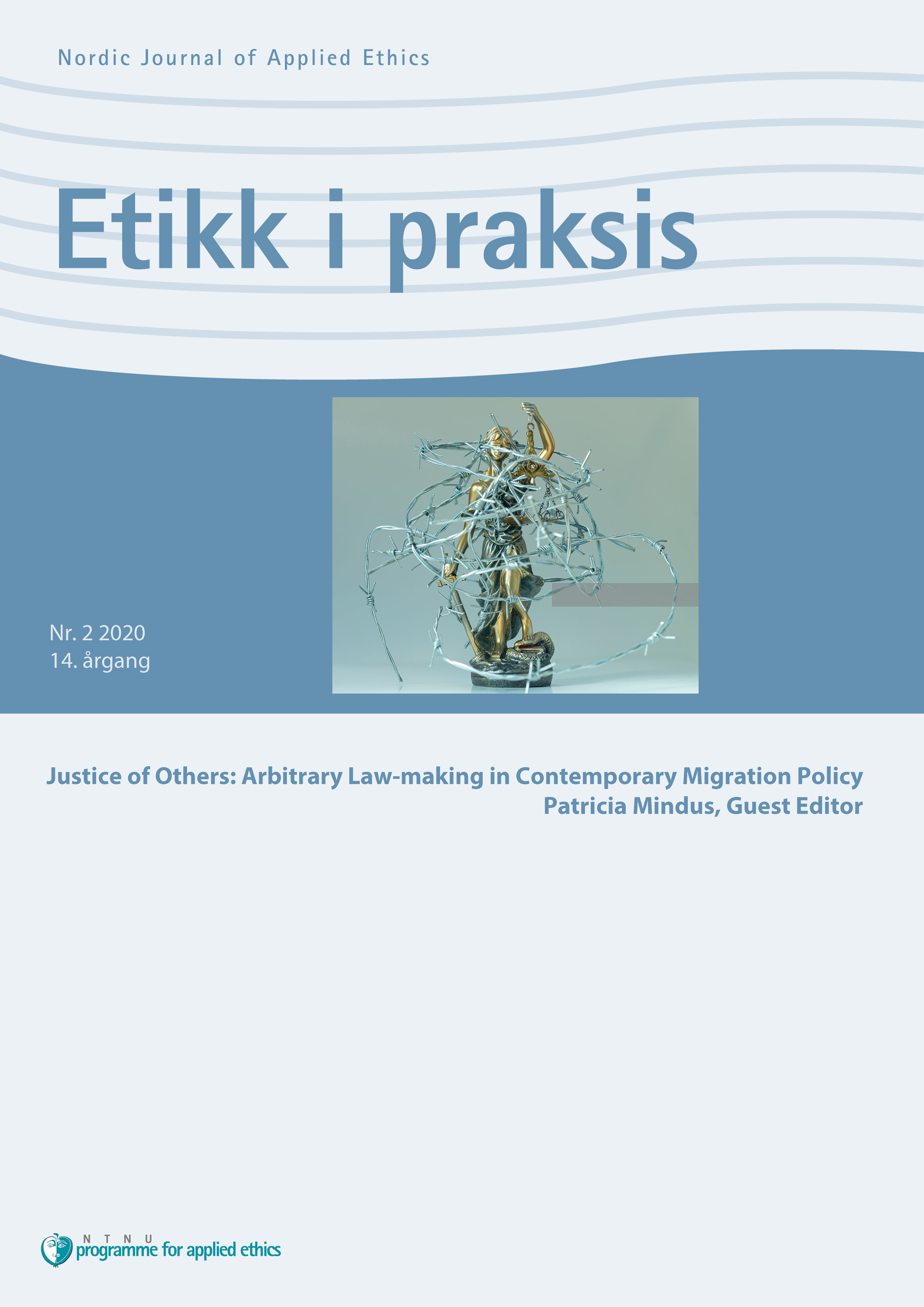Arbitrary Law Making and Unorderable Subjectivities in Legal Theoretical Approaches to Migration
DOI:
https://doi.org/10.5324/eip.v14i2.3537Abstract
The article considers the changes that have affected European border regimes of migration control as a testcase for discussing arbitrariness. The argument highlights the limited capacity of notions of arbitrariness defined as a departure from the rule of law to capture the ongoing conflict at the borders of Europe and brings, instead, to the foreground the ambivalent meaning of arbitrariness.
By comparing Santi Romano’s classical theory of legal pluralism with recent analyses of legal globalization processes, arbitrariness emerges either as an authoritative attempt to impose a different order on society or as a means to contrast acts of resistance to border regimes. In both cases, arbitrariness forcefully blurs the limits between the ordered and unordered, indicating the paradoxical impossibility of excluding the law’s outside from the legal order.
On these premises, the article advocates the importance of reframing the demand for open borders as a call for freedom of those who challenge the pragmatic order of migration regimes. Indeed, arbitrariness is necessarily limited when the legal order recognizes, to an extent, the agency and the claims of subjectivities that resist the dichotomy between inclusion and exclusion.
Keywords: migration, arbitrariness, borders, legal order
Downloads
Published
How to Cite
Issue
Section
License
Copyright (c) 2020 Enrica Rigo

This work is licensed under a Creative Commons Attribution 4.0 International License.


